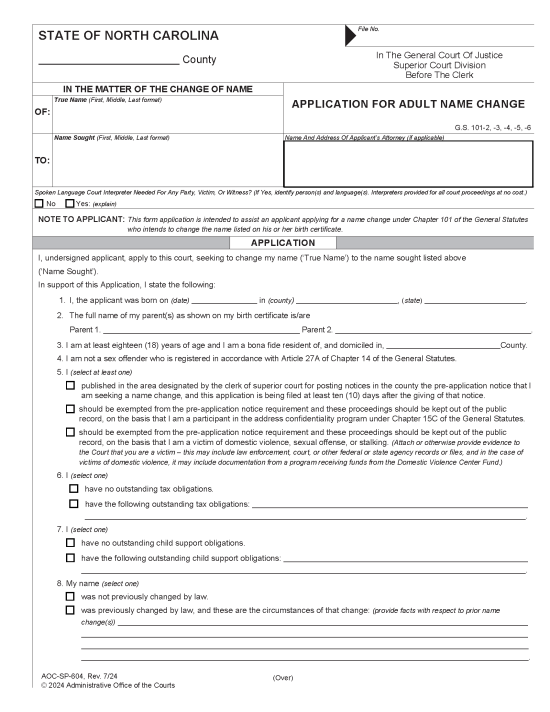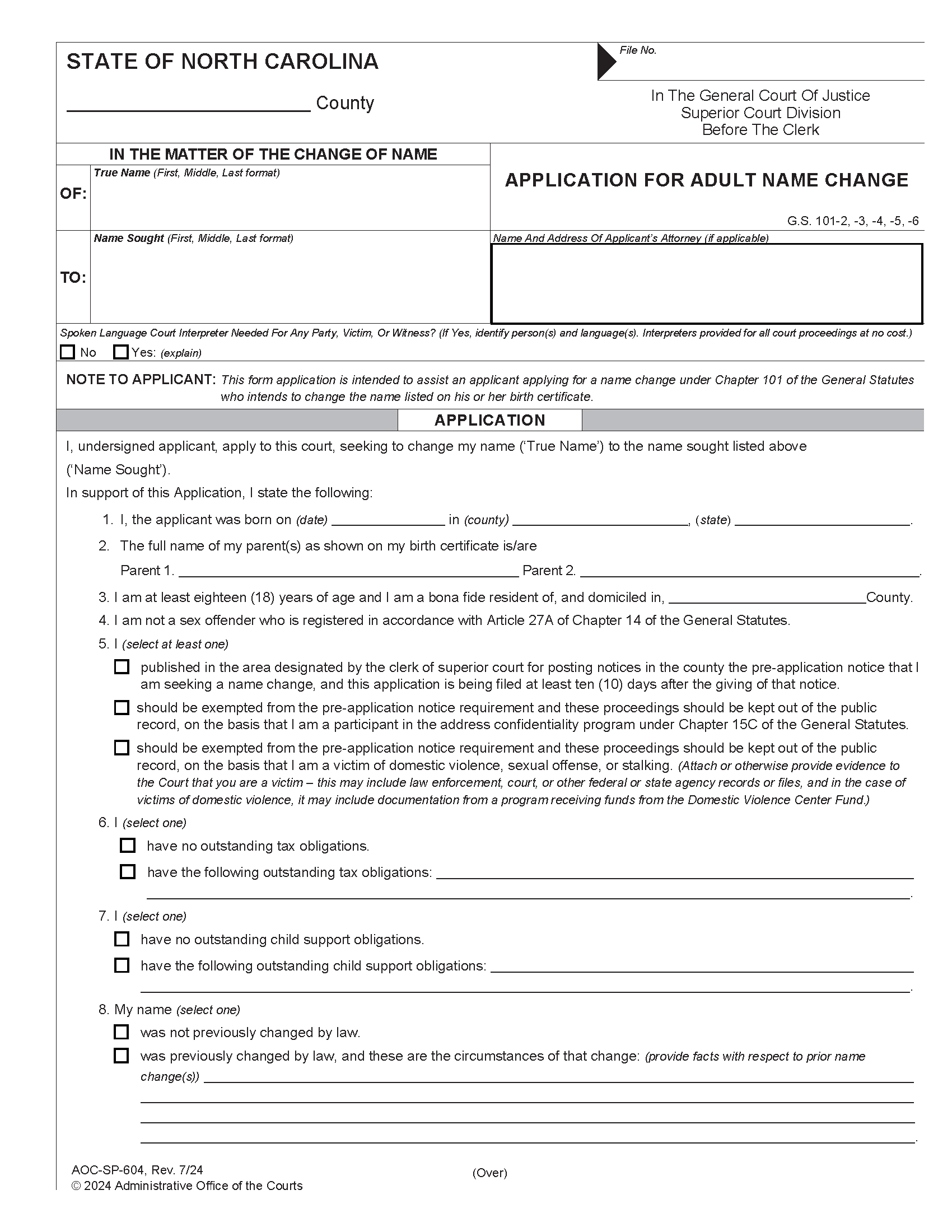Eligibility Requirements
- At least 18 years old or have the consent of both parents
- Be a North Carolina resident
- Not a registered sex offender
- Completed a state and national criminal record check
How to Legally Change a Name in North Carolina
Step 1 – Fingerprints
Step 2 – Federal Background Check
Step 3 – NC Criminal Record Check
Step 4 – Post Notice
Following the background checks, the petitioner must contact the clerk of the superior court to find out where to post a Notice of Intent to File Name Change.[2] This notice must be completed and posted for 10 days before applying for a name change.
Victims of domestic violence, stalking, and sexual violence may be exempt from the posting requirement.
Step 5 – File Documents
- Application for Adult Name Change
- Two Affidavits of Good Character[3]
- FBI and SBI background check reports
- Original/certified birth certificate + photocopy
- Proof of identity
- Proof of residency
- Affidavit of Tax Obligations and Outstanding Child Support[4]
These forms can be prepared online and then printed and submitted to the clerk with the filing fee.
Step 6 – Certificate of Name Change
Marriage and Divorce
An individual can also change their name during marriage. 10 days after the ceremony, they can request a certified copy of their marriage certificate from the register of deeds of the county where the marriage took place. The certificate can also be purchased online.
During the divorce process, an individual may request that their former name be included in the divorce decree.[5] Otherwise, an Application/Notice for Resumption of Former Name may be used. This document may also be used in the event of the death of a spouse.
Resources
Forms
- Petition for Name Change
- SBI Right to Review – Request Form
- FBI Identity History Summary Request Form
- Order On Application For Adult Name Change
- Application/Notice for Resumption of Former Name Form
- Affidavit of Good Character Form
- Affidavit of Tax Obligations and Outstanding Child Support
Links

